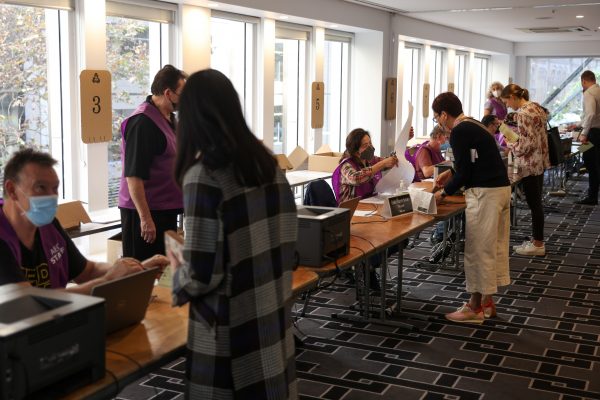Yet this increasing focus has not translated into a serious discussion about representation — an important issue for a multicultural society such as Australia, where ongoing underrepresentation signals that structural barriers to equality remain.
Despite having the proportionally largest Chinese diaspora in the Western world, Chinese–Australian representation remains low in Australian politics. While representation at the federal level has improved, it does not mirror the 5.5 per cent of the population who have Chinese ancestry.
This issue is not unique to Australia — similar underrepresentation issues exist in New Zealand and Canada. Many potential explanations have been suggested, such as language, lower levels of political participation and racial bias.
Underrepresentation has consequences for Australia’s policy settings, especially as US–China tensions escalate. Greater diversity delivers better decision-making because ‘group think’ is less likely, different perspectives are included and it forces a more careful consideration of information.
The complexity of issues facing the Chinese diaspora make the perspectives drawn from lived experiences and personal knowledge even more valuable. While those from mainland China constitute a plurality of the Chinese Australian community, this community is far from homogenous. There is a range of opinions — shaped by migration journeys, history, and personal experiences — that reflect the breadth and diversity of the Chinese diaspora in Australia.
A lack of diverse representation leads to one-dimensional perspectives where policy issues associated with China come to be seen simply through the lens of national security and defence. This ignores the potential impacts of a strained Australia–China relationship on Australia’s Chinese diaspora and other unintended domestic consequences. This should not be misconstrued as a suggestion to excuse or downplay the seriousness of human rights abuses by China, surveillance and harassment of diaspora communities on Australian soil and foreign interference concerns.
Attempts to dismiss concerns about the impact of these issues on the Chinese diaspora as ‘hurt feelings’ rather than understanding the genuine fear many Chinese–Australians have has been counterproductive. Their fear arises out of the perceived risk of being the target of distrust and exclusion, or seen as a potential vector of foreign influence simply due to their cultural background or family ties.
It also fuels the perception that Chinese–Australians would be acceptable collateral damage in a conflict. Efforts to deny claims of growing racism during the COVID-19 pandemic by some politicians — because it was seen as a geopolitical tactic by China — was an example of this. Such actions undermine community confidence that Australia genuinely believes in equality and can undermine soft power attempts to emphasise the importance of democratic values internationally.
Research shows that growing racism is far from imagined. The Lowy Institute revealed that over a third of Chinese–Australians were treated differently or less favourably because of their Chinese heritage in 2020 and 2021. Quantitative surveying by the University of Melbourne comparing Australian and US attitudes also found that perceptions of China led to stronger negative feelings towards permanent residents of Chinese heritage in Australia. Polling conducted by the Australia–China Relations Institute in 2022 found that over four in ten respondents thought Australians of Chinese origin could be mobilised by China to undermine Australia’s interests and social cohesion.
No doubt these are complex and challenging issues to navigate, and Australia is not alone in trying to work through them. Comparable Western countries with sizeable Chinese diasporas such as Canada, the United States and New Zealand are experiencing similar debates. But navigating these issues requires a sober focus on policy solutions that are consistent with liberal democratic values rather than ratcheting up securitised rhetoric.
There is no silver bullet, but addressing under-representation is one possible avenue. Doing so will ensure there is always a diverse range of voices at the decision-making table and concerns are heard.
This is not always easy as the political environment for individuals with Chinese heritage can be unfriendly. Parliamentarians Sally Sitou and Jason Yat-Sen Li have both spoken about racism and the questions they were subjected to about their ‘loyalty’ during their election campaigns. Both represent a very multicultural part of Sydney with a large Chinese diaspora.
Improving institutional representation for Chinese–Australians must be seen as a priority if Australia wants robust policy settings that deliver the best outcomes. By showing that Australia takes equality seriously, it can minimise the risk of alienation in an increasingly fraught and tense geopolitical environment.
Osmond Chiu is Research Fellow at public policy think tank Per Capita. He is a member of the Australian Labor Party.

